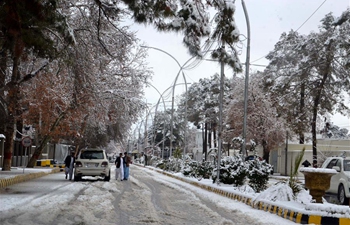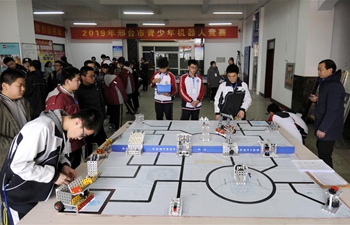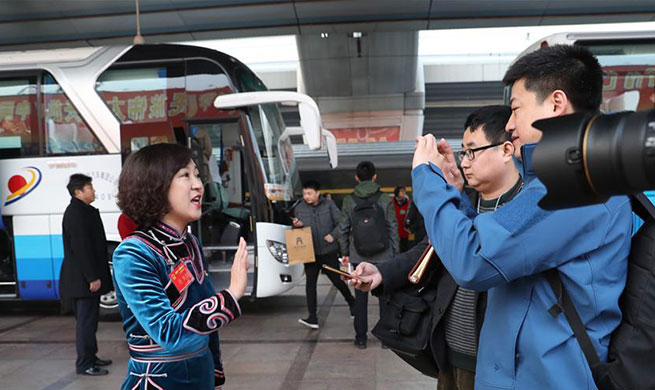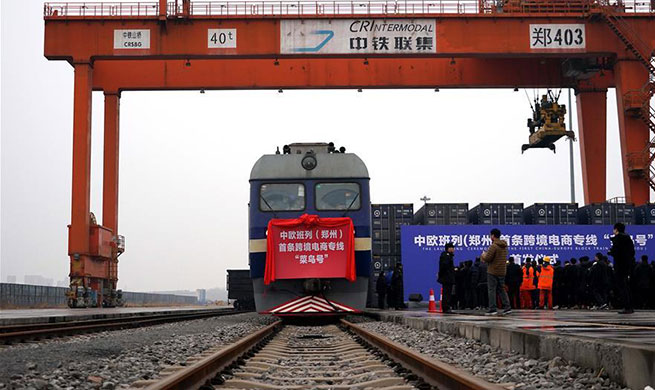by Pablo Giuliano
SAO PAULO, March 2 (Xinhua) -- Silvia Basilio Proenca felt safer after she installed a security camera in her car while driving passengers in Brazil's populous city of Sao Paulo.
The 51-year-old woman joined the country's ride-hailing service 99 in February 2017.
"At first, my family was concerned about safety. But for me, it was the ideal job while I underwent medical treatment, offering a flexible schedule and making a profit," Proenca told Xinhua.
Brazil suffers serious problems with crime. The country's homicide rate decreased 13 percent in 2018, but still saw about 51,000 cases in that year.
Installing cameras is aimed at enhancing security for both passengers and drivers, said the ride-hailing application.
"The idea was to create a tool that promotes prevention and is effective in resolving a problem," 99 spokesman Raul Montenegro told Xinhua in the company in Sao Paulo recently.
"99 focuses a lot on prevention, with the whole security system serving to give notice to the authorities," he said.
The project began with security cameras set up in vehicles serving in the cities of Sao Paulo, Porto Alegre, capital of the southern Rio Grande do Sul state, and Manaus, capital of the northern Amazonas state.
The Brazilian company, which owns a 600,000-strong fleet of taxis and privately-owned vehicles, was acquired by Chinese company Didi Chuxing last year. Some 18 million Brazilians are using this application which is among the first ride-hailing apps to put security cameras in place.
"We know that the question of safety is one of the most important to Brazilians," Montenegro said.
Images captured by the cameras are confidential. Passengers boarding a vehicle equipped with a camera will receive a text message that tells them the ride is being filmed.
The company has a team of experts including former police officers and members of the military, and psychologists who are available on a 24-hour basis. In case of an incident, the security team will alert the police.
The feature works to curb passenger crime as well, since a would-be attacker who hails a ride would think twice about carrying out an assault.
The new measure has brought more profits to Proenca. "Today, I earn more than what I was making before. I now manage to earn some 8,000 reales (nearly 2,000 U.S. dollars) a month by working 12 to 14 hours a day."
The camera makes all the difference, she said. "I get in the car, start driving and the camera automatically turns on via the phone's router. The good thing is that passengers are notified they are being monitored, in keeping with the law, and that is an efficient safety measure."

















